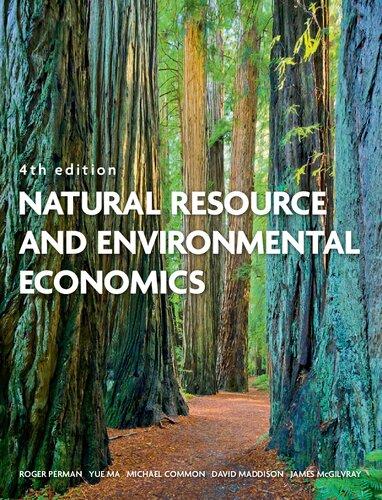Consider the following extracts from an article in The Independent newspaper (28 March 1995) by the economist
Question:
Consider the following extracts from an article in The Independent newspaper (28 March 1995)
by the economist Frances Cairncross:
Work by William Cline, a scrupulous and scientifically literate American economist, suggests that the benefits of taking action do not overtake the costs until about 2150. And Mr Cline sees global warming largely in terms of costs. Yet it is inconceivable that a change of such complexity will not bring gains . . . as well as losses.
Given the difficulties of doing something about climate change, should we try? Some measures are certainly worth taking because they make sense in their own right.... Removing such [energy]
subsidies would make the economy work more efficiently and benefit the environment, too.
Indeed, wise governments should go further, and deliberately shift the tax burden away from earning and saving... towards energy consumption.
Beyond that, governments should do little. The most rational course is to adapt to climate change, when it happens.... Adaptation is especially appropriate for poor countries once they have taken all the low-cost and no-cost measures they can find.
Given the scarcity of capital, it makes good sense for them to delay investing in expensive ways to curb carbon dioxide output. Future economic growth is likely to make them rich enough to offset those effects of climate change that cannot be prevented.
Provide a critical assessment of these arguments.
Step by Step Answer:

Natural Resource And Environmental Economics
ISBN: 9780321417534
4th Edition
Authors: Roger Perman, Yue Ma, Michael Common, David Maddison, James McGilvray






